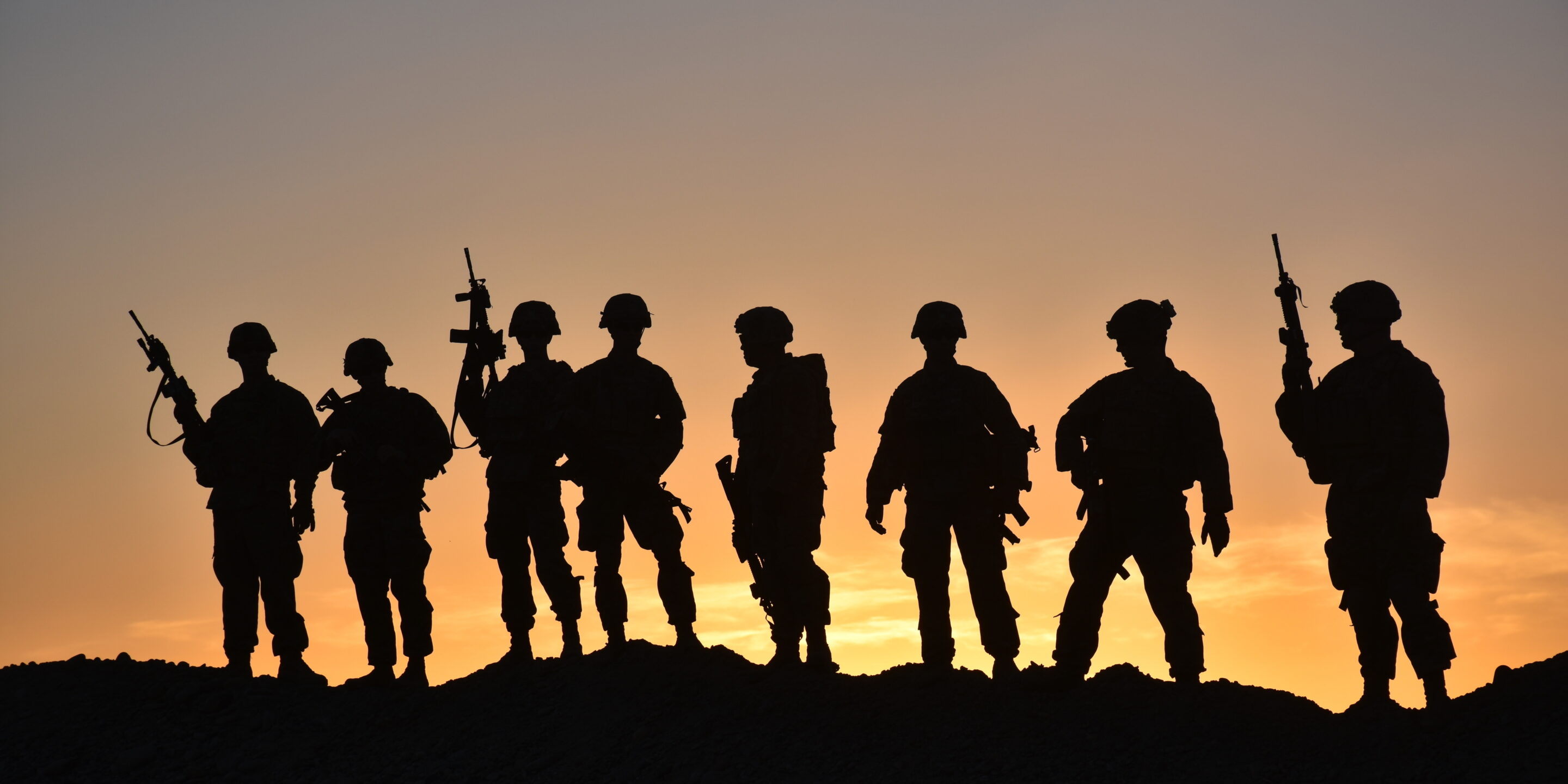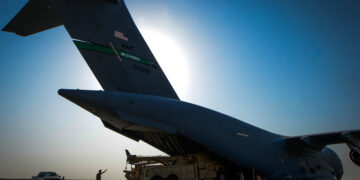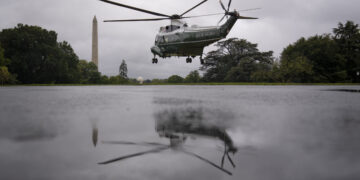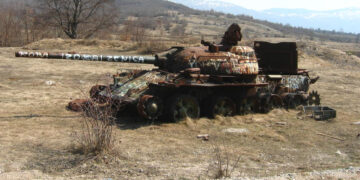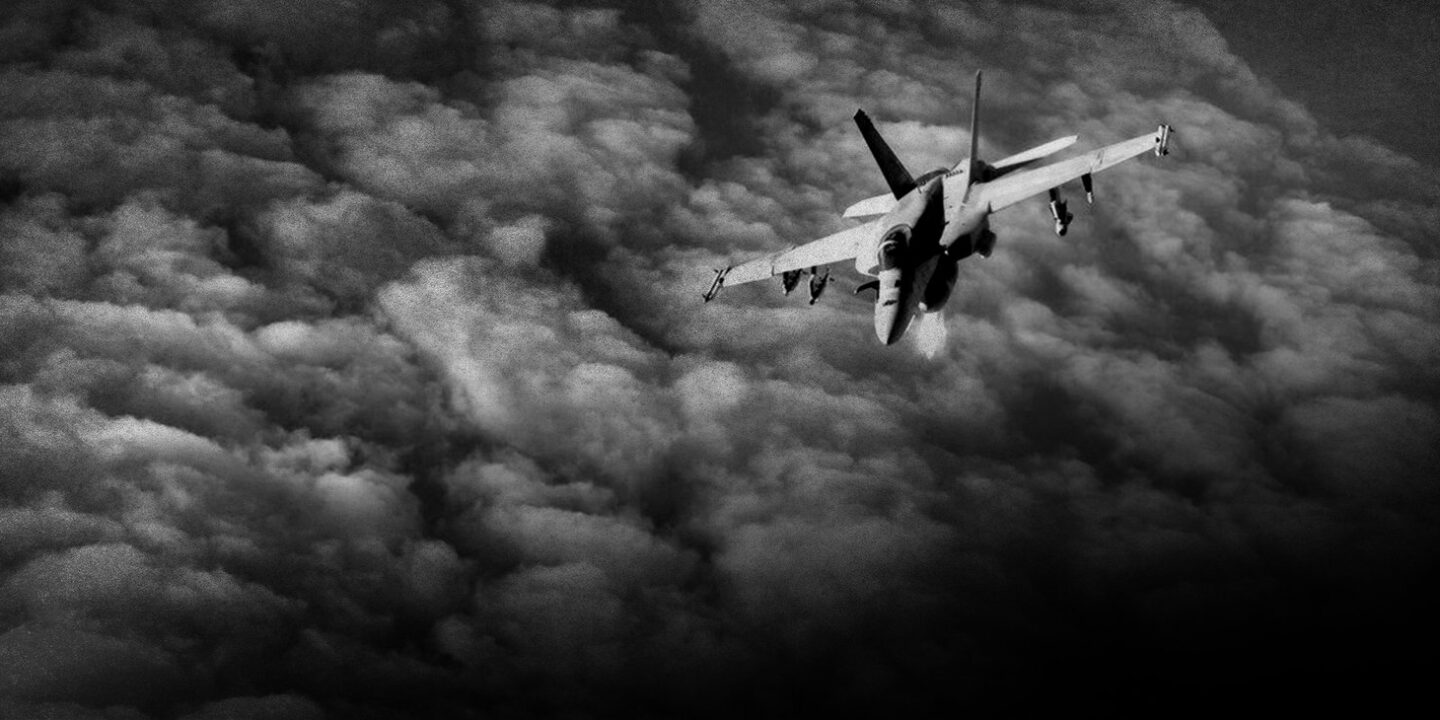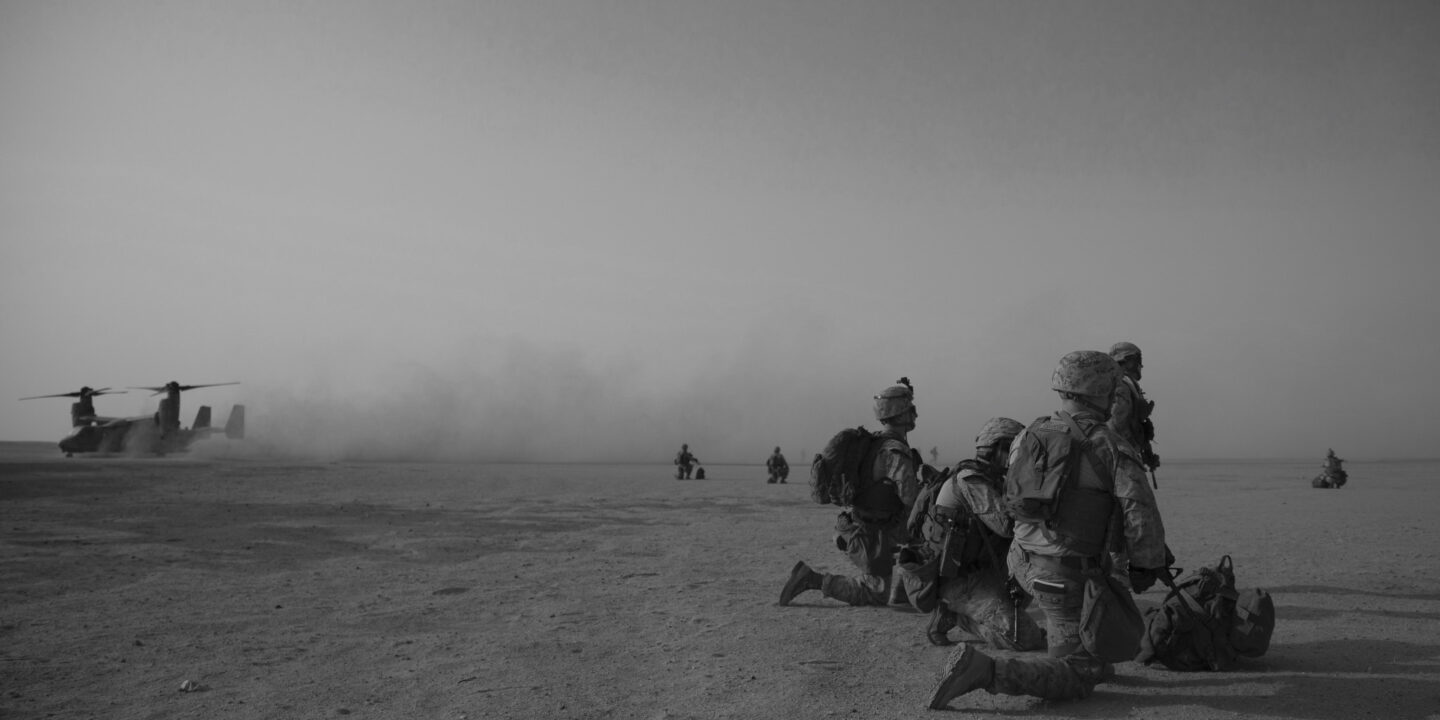THE U.S. WAR IN AFGHANISTAN HAS FINALLY ENDED.
The Afghan government collapsed, the Afghan military dissolved, U.S. troops returned home, and the Taliban are in control of the country. But there remains stark disagreement—or at least confusion—about what lessons are most important for U.S. policymakers to internalize from the nearly 20-year war.
The stakes are high. Elements of the U.S. war in Afghanistan are echoed in Iraq, Syria, Somalia, and other counterterrorism deployments in dozens of other countries around the world. Properly assessing what went wrong is critical to avoiding the costly mistakes that husbanded this failure.
Defense Priorities organized this symposium to stimulate thinking about the most important lesson U.S. strategists and decisionmakers should take away from America’s longest war. Below are responses from scholars and experts who—unlike the architects and proponents of the 20-year war—were right about U.S.-Afghanistan policy.
A core lesson from the U.S. war in Afghanistan is that even well-meaning interventions—those undertaken for the best of reasons—have a tendency to spiral out of control, picking up new objectives, and taking on a life of their own.
Few would dispute that war against Al-Qaeda and the Taliban was justified: the United States needed to respond to the terrible blow it suffered on 9/11. But even though the United States met many of its initial objectives in Afghanistan early in the war, it found itself increasingly mired in a broader and far more grandiose set of missions focused on stabilization, development, and democratization. These had the effect of undermining many of our original goals. Instead of pragmatic power-sharing options, the Bush administraion pursued democratization and nation building. Instead of a swift withdrawal, the U.S. military remained, focusing increasingly on development and other non-military tasks.
After twenty years of mission creep, the U.S. mission was so ill-defined that military leaders would repeatedly promise that Afghanistan was “turning the corner,” but could not define an end-state for U.S. presence.
Much more could—and has been—said about the many failures of the war in Afghanistan. But the most important takeaway is this: perhaps the most justifiable and necessary war in recent American history lasted two decades because we failed to define and stick to clear goals. That’s a lesson for any president considering future interventions.
It may be tough to remember now, with America defeated in its two-decade "forever war" in Afghanistan, but there was justifiable pride in the immediate wake of the U.S. intervention after September 11, 2001.
The Northern Alliance, with ample support from the CIA, U.S. Army Special Forces, and U.S. airpower, had overthrown the Taliban and decimated Al-Qaeda. A powerful and presumably enduring lesson had been sent to any nation or entity tempted to sponsor terrorist attacks against the United States.
What followed this triumph was nearly 20 years of strategic malpractice and squandered sacrifice. But the humiliating U.S. failure in building a peaceful, centralized Afghan state only underscores the success of the initial punitive expedition. At the cost of $20 billion and a dozen American lives, all vital national goals had been achieved during the initial campaign. Ninety times that amount, and 200 times as many American lives, were wasted in the 19 years that followed.
Punitive expeditions—strategic raids—belong in the U.S. foreign policy toolbox. Had American forces simply packed up and gone home in 2002 after their initial victory, it is hard to imagine that the situation in Afghanistan would be any worse than it is now.
The individual bravery and tactical prowess of the American fighting man and woman cannot overcome broader strategic failure.
During the war in Afghanistan, American troops routinely performed valorous acts in service of our nation, despite being set up to fail by policymakers who pushed expanded war aims not connected to our safety. However, the heroism of our service members in Afghanistan could not make up for the lack of a realistic strategy. Nor could it compensate for the fact it was beyond our ability and national interest to build a liberal democratic society in Afghanistan.
Going forward, policymakers should not confuse individual bravery or short-term tactical victories with strategic progress. More importantly, policymakers should not use the courage and martial ability of our troops to justify continuing endless wars that are not making us safer. This dishonors the sacrifice of those we send abroad to fight our wars and will only lead to more unnecessary loss of life and limb.
The war in Afghanistan failed for two main reasons.
First, beyond the initial mission in October 2001 to punish the Taliban for hosting Al-Qaeda and to degrade Al-Qaeda’s ability to conduct future terror attacks against the United States, Washington sought to achieve a political outcome using military means—baking in failure. Trying to force a U.S.-style political entity on the Afghan people, trying to remake (actually, form for the first time) a cohesive central government in Kabul, and attempting to overlay U.S. solutions onto Afghan problems was always going to be nearly impossible to pull off; trying to do so by relying on combat troops as the main coercive agent guaranteed failure.
Second, there was an abject unwillingness to acknowledge patently obvious ground-truth reality in Afghanistan by senior uniformed and civilian leadership in Washington—and then lying about it, for two decades. Our presidents, cabinet secretaries, and a parade of four-star generals and admirals were constantly aware that their nation-building efforts were failing, that the Afghan government was fatally corrupt, and that the Afghan security forces could only fight successfully when paired with western troops. Yet instead of admitting the truth, instead of being honest with Congress and the American people, our leaders lied, claimed routine success where there never was any, and, year by year, painstakingly built the disaster that predictably befell us with the collapse of the Afghan government and military.
This egregious misuse of military power, the abdication of leadership, and the absence of accountability for the failures doomed the war to certain loss. If we are to avoid similar disasters in the future, we are going to have to find the political will to hold accountable the architects of the failure.
Rather than a unique failure, the outcome of regime change in Afghanistan should have been expected from the beginning.
It is tempting to argue that more investment or more time could produce a better result. However, almost all cases of attempted state building after regime change produce similarly weak, non-democratic, and conflict-prone states as Afghanistan.
In general, time and resources cannot overcome the structural challenges of state building from afar. Scholars have consistently shown that strong pre-existing institutions and bureaucracies are conditions for successful state (re)building, rather than being driven primarily by the amount of resources and effort allocated. While these resources might be necessary, they are not sufficient for success.
In the only canonical example of successful post-regime change state building, the Marshall Plan allocated $13 billion, or $148 billion in today’s dollars, over four years to rebuild Western Europe after World War II. The U.S. invested more than 15 times this amount, over $2.3 trillion over the last 20 years, a more extensive investment than anyone could have expected in 2001. No greater amount of investment can overcome the structural issues that prevented successful state building in a weak institutional environment.
As U.S. experiences in Haiti, the Dominican Republic, Vietnam, Iraq, and elsewhere have shown time and again, greater effort is not sufficient to overcome a weak institutional environment. Re-focusing our understanding of state building to expect that failure is the modal outcome is the most important lesson to take from this 20-year experience in an effort to avoid similar pitfalls in the future.
The United States went into Afghanistan with clear eyes and a clear mission: destroy Al-Qaeda, the terrorist group that levied such destruction upon the U.S. homeland weeks earlier, and punish the Taliban government for hosting them.
The operation was an indisputable success during its first few months. By the end of 2001, Al-Qaeda’s physical infrastructure in Afghanistan was destroyed, Osama Bin Laden was running for his life, and the Taliban were desperately approaching Washington with peace offers.
U.S. policymakers, however, got greedy. President George W. Bush and Secretary of Defense Donald Rumsfeld quickly rejected Taliban overtures as worthless and unnecessary, believing the movement could be extinguished through force. Washington assumed so-called security partners like Pakistan had identical security interests in the region, when in fact the Pakistani military establishment was neither willing or able to cut its historical links to the Taliban. Even worse, successive U.S. administrations believed it was within Washington’s power to install a western-style, centralized presidential system in Afghanistan, a country that had always operated on decentralized governance and uber-local politics. In sum, we turned what was an overwhelming counterterrorism success story into a 20-year drain of resources, enabled by senior U.S. commanders more concerned with “winning” than playing it straight with the American public. The opportunity costs have been as serious as the loss of U.S. blood and treasure.
When historians look back at America’s longest war, they will ask three fundamental questions: Why did U.S. policymakers believe they could achieve the impossible? Why did it take so long for Washington to disabuse itself of this notion? And most importantly, have we learned from our mistakes?
One thing to take away from the war in Afghanistan is that it is sensible, even virtuous, to mistrust the U.S. national security establishment. The U.S. entry to Afghanistan’s civil war occurred for a good reason: to destroy the perpetrators of September 11. But when that proved almost too easy, U.S. leaders, encouraged by a broad array of national security experts, expanded it in Afghanistan and globally, not just to overthrow the Iraqi government, but to attack other jihadi extremists and Islamist insurgents with raids, drone strikes, and military training.
This War on Terror, in Afghanistan and beyond, was premised on several terrible misjudgments by U.S. leaders and the experts meant to guide them. The most basic was that the threat of terrorism was so profound that it justified the costs of endless war to build up the Afghan state, if not others. But Al-Qaeda was never much more than a loose conglomeration of extremists, unified by a weak organization with a budget in a low millions and a mishmash of millenarian ideas and Wahabbi Islam. The September 11 attacks were an intelligence and aviation security failure, not a good rationale for a long war in Afghanistan, let alone a global one. But we were taught, by leaders and useful experts eager to get our support for their varying agendas, that Al-Qaeda was a technologically sophisticated globe-trotting behemoth that would surely take root wherever state-failure let it, and then launch attacks that would make 9/11 look childish. One of the many baleful results of this error was that we had to stay in Afghanistan until the central government could run the whole country, which turned out to mean forever.
The exaggeration of the terrorist danger, while somewhat diminished from the Bush-era extremes, remains a dangerous pathology of U.S. politics. The terrible failure of war in Afghanistan is a sharp reminder that the U.S. national security apparatus, while mostly containing honest and well-intentioned people, tends to alarm us in order to overprotect us.
The military is a blunt instrument, useful for a limited set of purposes.
The military response to 9/11 was natural and reasonable, but the military was much more effective at deposing the Taliban government that sheltered the core of Al-Qaeda than it was at chasing terrorists or at nation building. Early success at kicking out the Taliban convinced Americans that the U.S. military was not only heroic but also effective at many tasks. We drew the wrong conclusion from the rapid collapse of Afghanistan’s central government. Collapse like that has often happened in Afghan history, including in 1992, 1996, 2001, and 2021.
Hubris drew U.S. leaders to expand the mission from hunting Osama bin Laden, a hard mission that took more than a decade, to simultaneously building a democracy and protecting human rights in a country that lacked the necessary preconditions—and into believing that the U.S. military would be an effective tool for that mission. Political development is a slow process for which there is no easy recipe, and it is a process that mostly comes from within, not from a foreign power that locals might view as an occupier.
We should learn military humility from the Afghanistan experience.
An important lesson from Afghanistan is that war propaganda is alive and well.
For nearly two decades the American public has been subjected to purposely biased, misleading, and false information regarding the war in Afghanistan and the larger war on terror. By keeping the American public, U.S. allies, and others in the dark with respect to conditions in Afghanistan, the U.S. government garnered support for an unwinnable war. Hiding behind layers of “necessary secrecy,” officials from the Bush administration forward sold their citizens a bill of goods. Wrapped in patriotic language, Americans bought the overly simplified narrative they were sold.
The consequences of this misinformation are severe and long-lasting. In the short term, U.S. citizens supported a policy they may otherwise have rejected, costing current and future taxpayers trillions of dollars. Thousands of Afghans lost their lives and thousands of U.S. military members were killed or injured. U.S. credibility among allies and enemies may be irreparably damaged.
In the long run, the propaganda associated with the war in Afghanistan and the war on terror undermines the very foundations of a democratic society by limiting the ability of the public to make informed decisions.
A core lesson from the war in Afghanistan is that U.S. power is limited.
In Afghanistan, the United States and its partners tried to create a strong centralized modern democracy, with the military in the lead. But foreign militaries cannot build stable democracies. Indeed, the democratization process is likely to include political violence.
History shows that previous prominent counterinsurgency campaigns did not build democracies either. In the Malayan Emergency, for example, the government stayed in power by tightly controlling civilians through military force, coopting rival elites, and conducting an attrition campaign against the insurgency. Ethical and human costs were high. Yet the great powers did attain their overall goal. Their partners built long-term political stability and remained in the western orbit.
Interveners cannot foster democratic reforms. Their leverage is limited by their commitment to partner survival. It is target-state elites who decide what political, economic, and social changes they may make. For an authoritarian government, expanding political participation, ending corruption, or respecting human rights means regime suicide because reforms would reduce elites’ wealth and power. Only if the domestic political context changes might elites find it in their interest to implement a specific reform.
In Afghanistan, no U.S.-backed government found reforms in its interest.
The 9/11 attacks represented a historic failure of the U.S. government in its most important duty.
In response to its failure, the government granted itself enormous new powers and used them recklessly, killing roughly a million people and wasting $8 trillion dollars.
The agglomeration of policies and powers we refer to as the “War on Terror” might never end. There are two main reasons for this. First, there is little reason to believe the public has the incentive or attention span to maintain pressure on the government to change its policies and give up its new powers. Second, the Washington foreign policy establishment is an insular clique that does not police itself and whose failures are punished by no one outside it. That is why we see David Petraeus and John Bolton, the William Westmoreland and Baghdad Bob of the war on terror, on television bitterly denouncing the withdrawal from Afghanistan.
For those of us who do not like this equilibrium, one could try to make the “War on Terror” a mass political issue or try to create a counter-establishment in foreign policy. My bet, and considerable effort at present, is on the latter.
We have believed, for years now, that investing a trillion American dollars in foreign aid, and 20 years of commitment, costing across many years, 100,000 American ground forces, and over 2,000 dead, would lead to a liberal democracy in Afghanistan.
It is now clear for all to see, that was simply a fantasy.
Looking ahead, the Biden administration has relied heavily on rhetoric around an over-the-horizon strategy. This needs to be far more than a catchphrase—it must become a reality.
For an over-the-horizon strategy to work America needs to establish some essential elements to destroy any terrorist bases and attack important targets of opportunity that emerge. In addition to our regional bases, airpower, intelligence, surveillance, reconnaissance, and special forces, we need drone bases in surrounding countries and new human networks in Afghanistan.
Our dedicated troops have sacrificed so much for all that is good and great in America. America is worth such sacrifice, not because we are perfect, but because we work to fix mistakes and improve. Many have given the last full measure of devotion in Afghanistan. We can and must honor their sacrifice by sincerely committing to the most suitable lasting path of security for our country.
A core lesson of the U.S. war in Afghanistan—beyond the fact that it was an unnecessary war once the Taliban was deposed and Al-Qaeda’s leadership was scattered and the mission morphed from counter-terrorism to nation-building—is that America’s military and political leadership were never honest about what it would cost to prosecute a war.
The metric for successful counterinsurgency is 20 troops per 1,000 civilians. With a population of 32 million, that means a force of 640,000 troops was needed in Afghanistan. For a sense of scale, the total U.S. Army active duty force is less than 500,000 soldiers. But counterinsurgency is more than just troop levels. Successful counterinsurgency also requires the use of harsh—even brutal—and indiscriminate military force to impose security and order. Those realities would not have played well with the American public—especially after regime change against a lesser military foe was done with relative ease and speed. So arrogance led U.S. military and political leaders to tell a story they believed Americans wanted to hear and would accept. Hubris led them to believe they could accomplish the false tale they spun.
The tragedy is that it was all for naught. The various threats in Afghanistan now—the Taliban, Al-Qaeda, the Haqqani network, and the Islamic State—are internal threats. None are direct military or terrorist threats—let alone existential threats—to America that required a 20-year military presence. Afghanistan was not a war of U.S. national survival, but a civil war within the Muslim world. In Afghanistan, it was and is a war that can only be fought and won by the Afghans.
A core lesson from the U.S. war in Afghanistan is that we live more in a balancing than a bandwagoning world.
Projecting power against entrenched interests amidst wider conflicts is more likely to attract violent resistance and pushback. In the world of power politics, the arc of the universe does not bend toward light, the interests of well-intentioned western interveners and others are often misaligned, and it is hard to get foreign elites to want the same things that the superpower wants, on its terms and on its timetable. Defeat in Afghanistan was partly due to local resistance, and partly due to an international backer, the intelligence apparatus of Pakistan. Both bled U.S. forces because they were determined to pursue their interests, wanted different things, and knew they could out-wait the intervener.
Moreover, America’s ally, a client state and kleptocracy in Kabul, also wanted different things—not to reform or build capacity in order for the United States to leave, but to acquire the spoils of office and keep the United States present as a bodyguard, thereby fuelling insurgency.
Yet despite these problems and moral hazards, the delusion persists that the United States will have more success in future if only it summons more will-power and resolve. Foreign policy is more a test of judgement than resolve.
The United States failed in Afghanistan because it never tried to succeed in Afghanistan.
It tried to succeed in the “War on Terror,” a mythical construct of the trauma of our post-9/11 wounded pride.
War was about our trauma, and “peace” was about our leaving. The United States treated Afghanistan’s history, culture, religion, economy, demographics, geography, and, above all, politics, as challenges or even obstacles to be overcome.
Hence a refusal to make peace, the subcontracting of policy to profit-seeking contractors, willful ignorance of the strategic consequences of Afghanistan’s location, the building of security forces in our own image, dependent on American contractors, and an agreement to leave implemented by two administrations with disregard for its effects on Afghanistan.
A core lesson from the U.S. war in Afghanistan—but one that will almost certainly be purposely ignored or unlearned over time in our gloriously optimistic country—is that idealism is a powerful drug, but constraints are real and will ultimately bite hard even on a superpower.
From presidents all the way down to leaders in the field, the war we fought in Afghanistan was impacted deeply by fantastic notions about what motivated Afghans, about the universal attraction of a more liberal world, about the malleability of Afghan culture, about the capabilities of our military and civilians (no matter how brave) and their superiority to our “backward” adversaries, about our knowledge of—and ability to know—what was required for success for such a broad mission, and about how even known limitations could be overcome.
But reality votes early and often. Constraints flummoxed us and could not be battered by individual bravery, working harder, or our amazing technologies. The problem of a porous border with a country on the other side providing aid and respite to the enemy was real from the get-go. Afghan corruption and the perverse incentives created by well-intentioned foreign aid undermined the regime’s legitimacy.
Some ends—like counternarcotics and values promotion—worked logically against other goals and the contradictions could not be resolved. The balance of will not only between us and the Taliban but among the coalition partners was another hard reality that could not be easily changed. And in the end, we simply were never going to care enough about our expanded war aims to “pay any price, bear any burden” to meet them—especially since our real national interests were limited and could be accomplished much more modestly.
The war in Afghanistan illustrates the necessity of setting priorities in U.S. foreign policy, and the difficulty of doing so.
The United States went into Afghanistan to eliminate Al-Qaeda. This goal was laudable, but it executed the operation shabbily by selecting a military strategy that allowed much of Al-Qaeda to slip away in 2001–2002. Subsequently, it chose to stick around and attempt to build a liberal, centralized Afghan state, only to give this choice second billing within a few months as the Iraq War loomed. And, when the Afghan mission became mired in a Taliban-led insurgency that had little bearing on the original counterterrorism operation, the United States decided to stick around (despite the shortcomings of the Afghan state) until Presidents Trump and Biden finally chose to leave.
The United States, in short, was ill-disciplined throughout its 20 years in Afghanistan, making a series of unforced strategic and tactical errors. Yet, we shouldn’t be surprised: as a wealthy, secure, and distant nation, the United States rarely faces sufficient pressure—or bears sufficient costs—to discipline its foreign policy behavior. Although, as the limits of U.S. power appear and new competitive pressures arise, this situation may finally be changing.
The United States cannot build militaries in stateless nations. Building militaries is hard because local leaders in the midst of societal upheaval and civil war are often more interested in protecting their own physical, financial, and political interests than advancing U.S.-led statebuilding projects.
Washington delegates large-scale military assistance efforts almost entirely to the U.S. military. The U.S. military relies on personal diplomacy to coax, cajole, and convince uncooperative local leaders to implement policies that improve their militaries. This strategy of influence does not work. Local leaders routinely welcome U.S. cash and equipment, while simultaneously ignoring U.S. military advice and implementing policies that keep their militaries weak.
Tasked with an impossible mission, the U.S. military quietly shifts the goal posts. Perpetuation of military assistance projects, rather than professionalization of the partner military, becomes the primary objective. Washington defers to the military, and military assistance projects continue ad infinitum.
Insurgencies can only survive (and possibly win) when two conditions are present.
First, insurgents need sanctuary or a base area. This can be a challenging area of the theater of conflict, such as a jungle, swamp, or mountainous terrain (anything that makes it tough to move a vehicle); or it can be political (like an international boundary). Second, insurgents need social support. They generally rely on racism, brutality, and over-reaction by incumbent forces or incumbent allies to increase their base of social support from a small minority, to an entire society in opposition (after which further incumbent and allied assaults become tantamount to genocide).
The Soviets tried for a decade to defeat Pashtun mujahideen and Taliban, only to find that their brutality delegitimized their local allies, and insurgent access to an international border with Pakistan (a nuclear-armed state) made it impossible to defeat the insurgents. The U.S. and allied effort suffered from the sanctuary problem (think of Osama bin Laden safe in Abbottabad, Pakistan), and ultimately from the fundamental lack of a national identity among those they sought to aid.
In hindsight, it’s difficult to argue that even with a full understanding of counterinsurgency wisdom the U.S. and its allies could have succeeded, given the political need to publicly enact revenge on those responsible for 9/11.
The war in Afghanistan is a vivid reminder that is easier to start a war than to end it.
The United States may have won a smashing victory over the Taliban in 2001, but it still ended up trapped in a costly and ultimately unwinnable conflict.
War inevitably unleashes powerful political forces that policymakers rarely appreciate. If the enemy state is successfully destroyed, the result is usually a zone of instability that the occupying forces will struggle to pacify. Their presence will fuel local resistance and efforts to suppress it usually make it worse. Civilian and military leaders will be forced to lie to maintain public support, offering exaggerated reports of progress and overly optimistic forecasts of victory. Patriotic dissenters will be ignored or marginalized and even leaders who recognize the futility of continuing to fight will be reluctant to face reality and bear the political costs of admitting defeat.
The lesson is not that wars should never be fought; it is that no country should enter a war without clear and feasible objectives and a well-planned exit strategy. As we have seen in Afghanistan, Iraq, and several other recent conflicts, any other approach is a recipe for disaster.
A U.S.-led military intervention alters the underlying power dynamics of a country or conflict in a way that is only sustainable through total military defeat or permanent and costly occupation.
In fact, as soon as U.S. troops enter a regime-change war, the future cost of withdrawal is already incurred. Avoiding the consequences of this suspended sentence drives the sunk cost fallacy that is used to justify the continuation of costly wars. Washington’s ephemeral thumb on the scale in Iraq’s internal power dynamics helped spawn ISIS after it was lifted. The impermanence of purportedly systemic changes brought by intervention is obvious from the rapid collapse of the Afghan government and security forces as U.S. troops withdrew. Washington was simultaneously a security guarantor of the previous government in Afghanistan and a driver of the conflict. The cessation of most fighting in Afghanistan following the withdrawal of NATO troops places the extent of this reality into full relief.
Critics of the withdrawal from Afghanistan have lamented a lack of “strategic patience,” but few confronted the costs for Americans and Afghans of an open-ended commitment and conflict measured in decades. Others aver that the current outcome in Afghanistan was far from inevitable but a consequence of key strategic errors. These include the Bush administration’s alienation of Iran, disproportionate reliance on Pakistan, a distracting foray into Iraq, and the elevation of corrupt partners in Kabul. But forming a coherent strategy in Afghanistan–or any regime change war–out of Washington’s many competing interests is akin to lining up the squares of a Rubik’s cube while blindfolded. Furthermore, the behavior of domestic and regional actors is shaped by the calculation that the United States will eventually leave. They’re right.
America’s war in Afghanistan exhibits the danger of prolonging a combat mission past the point where its objective can be clearly defined and verifiably achieved, even when a record of success to date makes the cost of continuing into the future appear to be low.
If the United States had a chance to win the war in Afghanistan and leave behind a government not dominated by the Taliban, that chance came early. Within a year of 9/11, U.S. forces had routed Al-Qaeda and driven the Taliban from power. It was then that America’s combat mission should have ended. A timely departure would have given Afghanistan’s young government its best chance of establishing roots among the Afghan people. It would have deprived the Taliban of the specter of a foreign occupier to revitalize its cause.
Instead, thousands of U.S. troops remained, tasked with destroying the enemy. They became tools of rival Afghans and co-dependents with a corrupt and violent government. In 2004, the Taliban insurgency commenced, destined to recapture the country.
Today, many argue that if only the United States had not diverted resources from Afghanistan by invading Iraq, then it might have succeeded in building a western-style Afghan state. This interpretation only recycles the logic that doomed America’s two-decade war. What was needed, once the original mission was accomplished, was not more force but less.
